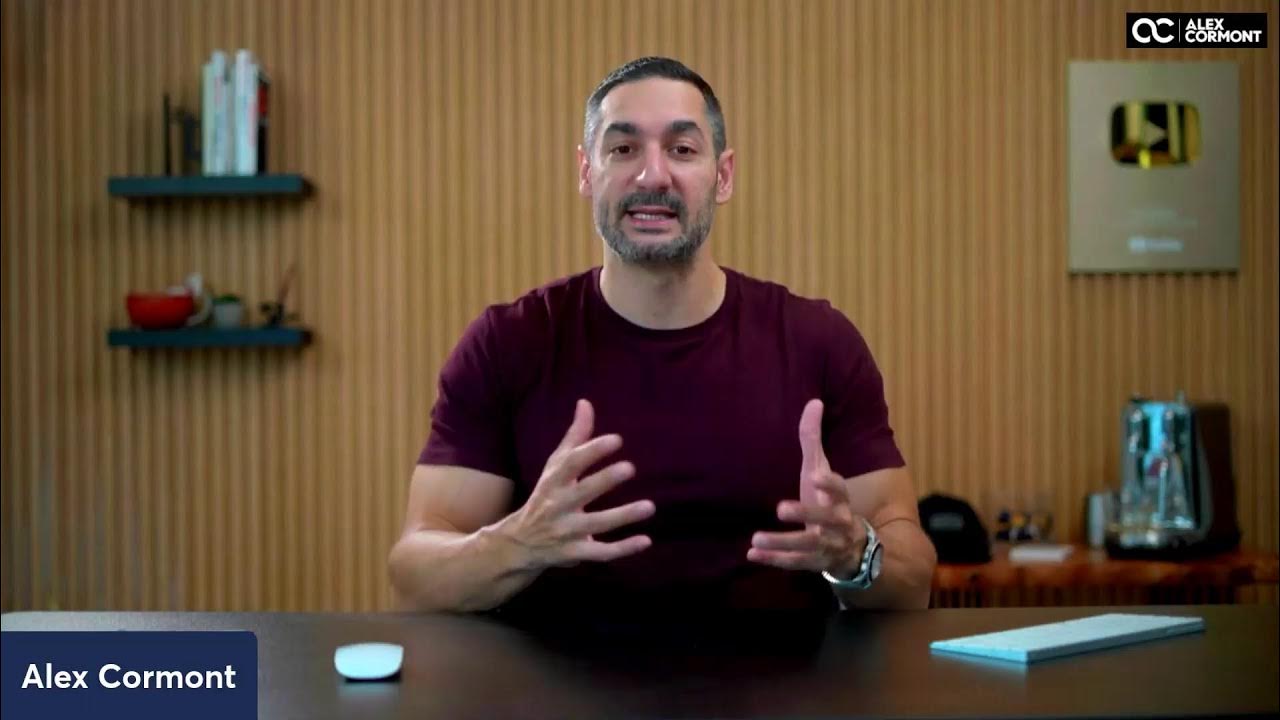Stop explaining yourself—they're NOT listening
Summary
TLDRThis video explores the challenges of communicating with people who are unwilling to listen, despite your best efforts to explain. It emphasizes the importance of recognizing when a conversation is unproductive and offers practical strategies like the 'broken record' technique to disengage gracefully. The video encourages viewers to stand firm in their boundaries, recognize manipulative behaviors, and preserve their emotional energy by knowing when to walk away from unresolvable situations.
Takeaways
- 😀 Recognize when someone is unwilling to listen and stop over-explaining yourself.
- 😀 Use the 'broken record' technique to repeatedly convey your main point without getting caught in unnecessary debates.
- 😀 People may deflect or misinterpret your reasoning as a defense mechanism or avoidance tactic.
- 😀 If someone fails to engage with your points, it's okay to agree to disagree and end the conversation.
- 😀 Protect your energy by disengaging when someone is clearly not listening or trying to divert the topic.
- 😀 Request that the person paraphrase your message to see if they are truly understanding what you're saying.
- 😀 Corporate representatives and individuals with ulterior motives may intentionally avoid answering tough questions.
- 😀 Repeating your message multiple times without providing further details can help convey your point clearly without getting frustrated.
- 😀 It’s important to know when to stop explaining—sometimes silence speaks louder than additional words.
- 😀 In personal relationships, set boundaries when someone fails to show empathy or listen to your perspective.
Q & A
What is the core message of the video?
-The core message is to recognize when you're engaging with someone who isn't listening and to stop over-explaining yourself, instead setting clear boundaries and protecting your energy.
What is the 'broken record' technique?
-The 'broken record' technique involves repeating your message calmly and consistently, without getting distracted or pulled into unnecessary details, to ensure your point is heard.
How can one recognize when someone is not listening during a conversation?
-Signs that someone is not listening include a lack of engagement, ignoring the main point, redirecting the conversation, giving shallow responses, or refusing to acknowledge your perspective.
Why is it important to disengage from conversations with people who aren't listening?
-It’s important to disengage because continuing to explain or argue with someone who refuses to listen wastes time and emotional energy, and often leads to frustration without achieving any meaningful resolution.
What role does self-preservation play in communication, according to the video?
-Self-preservation is emphasized as crucial in communication. Protecting your mental and emotional well-being is key when dealing with individuals who are unwilling to engage in productive or respectful discussions.
What advice does the speaker give when someone repeats the same mistakes in conversations?
-The speaker advises using the 'broken record' technique to calmly reiterate your message without re-explaining or getting caught in their defensive responses, and if that doesn't work, to end the conversation.
How should you deal with individuals who dismiss your perspective completely?
-It’s suggested to calmly express your viewpoint, ask them to paraphrase your point for clarity, and then, if they still dismiss your perspective, decide to disengage and stop explaining further.
Why does the speaker recommend repeating the same point in these situations?
-Repeating the same point serves to reinforce your message, ensuring clarity and assertiveness while minimizing unnecessary debate or diversion from the main issue.
What impact does the speaker hope to have on viewers who might be facing similar communication struggles?
-The speaker hopes to empower viewers by encouraging them to set boundaries, stop over-explaining, and disengage from unproductive or toxic communication, leading to healthier and more respectful interactions.
What does the speaker mean by saying 'it's just your way or the highway' in the video?
-The phrase 'it's just your way or the highway' is used to illustrate situations where the other person is unwilling to negotiate or listen to your perspective, forcing you to accept their stance without any room for compromise.
Outlines

This section is available to paid users only. Please upgrade to access this part.
Upgrade NowMindmap

This section is available to paid users only. Please upgrade to access this part.
Upgrade NowKeywords

This section is available to paid users only. Please upgrade to access this part.
Upgrade NowHighlights

This section is available to paid users only. Please upgrade to access this part.
Upgrade NowTranscripts

This section is available to paid users only. Please upgrade to access this part.
Upgrade NowBrowse More Related Video

Finalement, nos téléphones pourraient bel et bien nous écouter

The BEST Rep Range for Muscle Growth Over 50 | Gary Walker

Похороны Навального. Тысячи человек вышли проститься с Алексеем. Навальный с нами навсегда

Loskomen van Emotioneel Onvolwassen Mensen - dr. Lindsay Gibson

Maybe Your Ex Wants A Challenge And You're too Needy?

Patrisia Vania Meirylka_Best Life Design?? Know Yourself First_2025_TTKI-UNDIP_C
5.0 / 5 (0 votes)